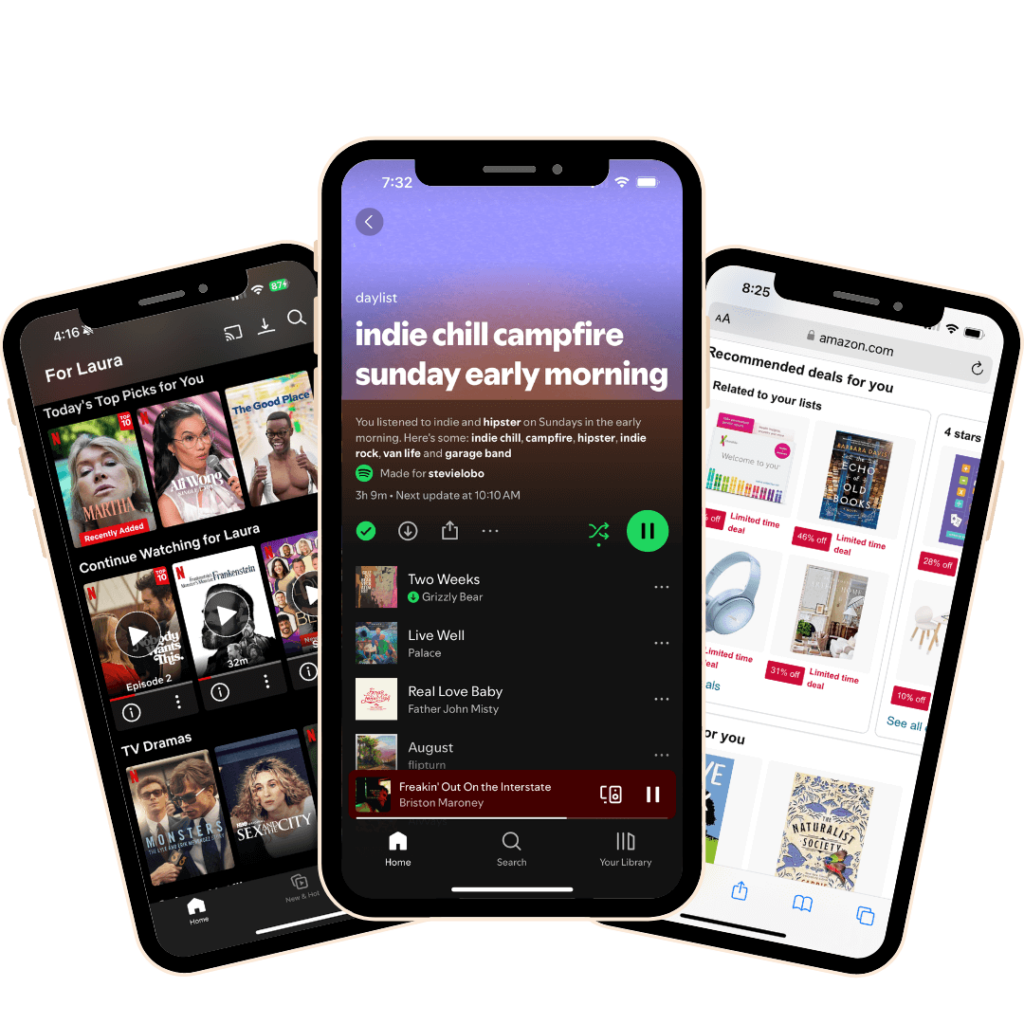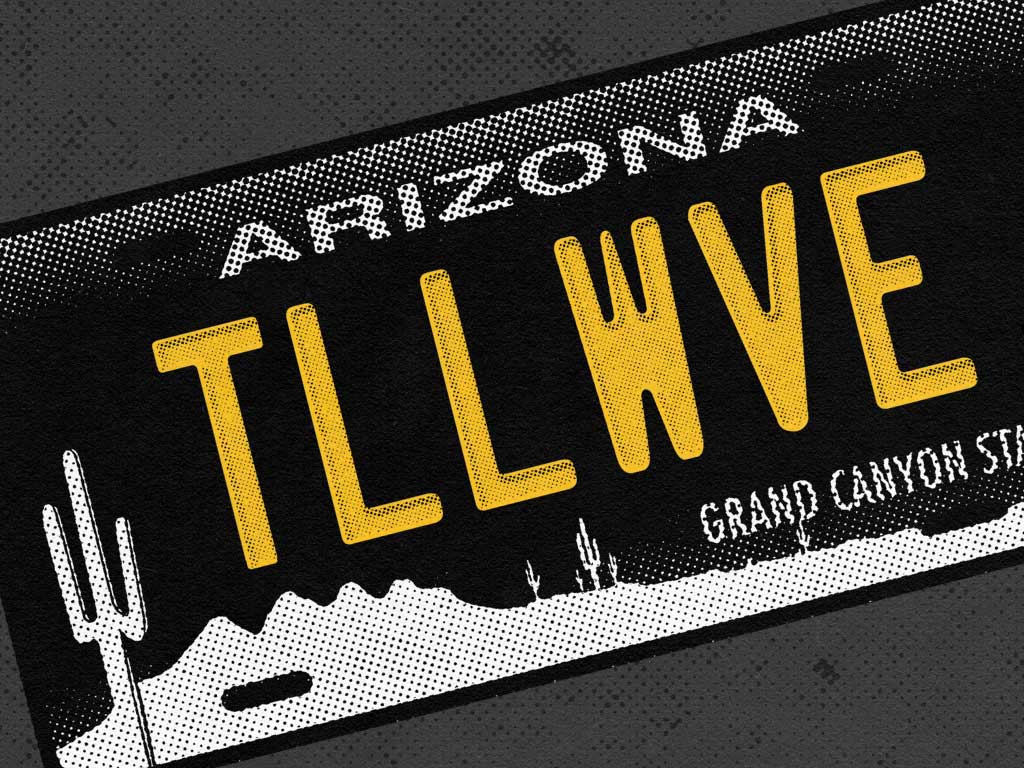As technology has evolved and marketers have (mostly) maintained access to audience data, personalization has become an essential marketing strategy for brands aiming to drive engagement, build loyalty, and ultimately boost conversions. Customers expect brands to provide them with content and offers that feel personal and relevant. Personalization in marketing is no longer a nice-to-have; it’s a must for modern marketing success.
What is personalization in marketing?
Personalization in marketing refers to the practice of tailoring content, messages, and offers to individual customers based on their data, preferences, and behavior. You’ve probably experienced this before in scenarios like these:
- You fall in love with an article of clothing on the website of a brand you’ve bought from in the past, you add it to your cart, but because it is a little pricey, you ultimately decide not to make the purchase. An hour later, you get an email from the brand reminding you about the item in your cart and offering you 10% off.
- You log in to your favorite streaming app and are met with recommendations on what to watch next based on your recent viewing activity. “Welp, better block off my Saturday. The latest season of The Great British Bake Off just dropped.”
- You are doing some online research for a new sports car. Over the next week, you see banner ads on social media platforms and news websites and even hear an ad in your favorite podcast for different types of sports cars.
- You book a flight to visit your parents in Kansas. In the weeks leading up to your trip, the airline sends you a series of emails asking if you’ve booked your hotel and your rental car yet. It might even send you a list of activity ideas. Because who wouldn’t want to plan a visit to the largest ball of twine?
As you can see, personalization can take many shapes. It spans across a variety of channels, including email, websites, apps, social media, and paid media. When done right, coordinated personalization across these channels can be extremely impactful, creating a cohesive, seamless experience throughout the customer journey.
The science behind personalization
At its core, personalization taps into the human need for recognition, relevance, and relatability. Individuals want to feel seen, and tailored content and experiences can help make this personal connection between brands and their audiences. You may not even register a generic ad that finds its way in front of you, but an ad that uses your name, showcases a product you’ve expressed interest in, or tells a story that aligns with your values is a lot harder to ignore.
By using data—often with machine learning and AI—brands can better understand their audience’s needs, preferences, and behaviors. This insight enables them to create personalized experiences that feel more human. When brands connect with audiences in this way, it builds trust, strengthens loyalty, and encourages people to take action.
Personalized content cuts through clutter
In a world oversaturated with digital ads and content, personalization is a powerful tool for cutting through the noise and capturing attention. Generic, one-size-fits-all messages are easily ignored, but personalized experiences feel relevant and valuable to the customer. By delivering content, offers, or recommendations that align with individual preferences and behaviors, brands can bypass the usual clutter and stand out in crowded inboxes and social feeds.
Personalization allows customers to feel seen and understood, making them more likely to engage with the brand, remember it, and even seek it out again. Through tailored interactions, personalization transforms a brand from just another voice in the crowd to a meaningful, memorable presence.

A masterclass in personalized experiences
Some brands have mastered personalization, creating unique, memorable experiences that keep customers coming back. From predictive recommendations to curated playlists, these brands understand that personalization goes beyond simply addressing a customer by name; it’s about anticipating needs, surprising customers, and delivering relevant content across every touchpoint. Here are a few standout examples:
- Netflix: Known for its sophisticated recommendation engine, Netflix uses machine learning to suggest shows and movies based on viewing history and individual preferences, creating a uniquely tailored experience for each user.
- Spotify: With personalized playlists like Daylist and Discover Weekly, Spotify crafts music recommendations based on listening patterns, helping users discover new music that fits their tastes.
- Amazon: By leveraging data on previous purchases, browsing history, and wishlist items, Amazon’s personalized recommendations and tailored email promotions make shopping easy and relevant for each customer.
- Coca-Cola: Their iconic “Share a Coke” campaign, featuring customer names on bottles, created a personal, shareable experience that resonated with customers globally and encouraged brand loyalty.
- Nike: Through the Nike app, users receive workout recommendations, personalized style tips, and early access to new products based on their activity and interests, blending lifestyle and personalization seamlessly.
What personalization strategies mean for your bottom line
When 81% of customers prefer companies that offer a personalized experience, you can pretty much guarantee results from a well-executed personalization strategy. The deep connections forged with audiences through personalization materialize in the form of:
- Enhanced customer experience: When brands align their messages with individual preferences, customers feel valued and understood. This, in turn, improves overall satisfaction.
- More conversions: Personalization delivers relevant content to the right audience at the right time, making them more likely to engage and convert.
- Increased customer lifetime value: When customers feel connected to a brand, they are more likely to stay loyal over time. Personalization fosters this loyalty by making customers feel seen, resulting in repeat purchases and longer relationships.
- Stronger ROI: Personalized marketing strategies typically generate marketing efficiencies as the people you reach become more likely to engage and convert. As a result, you generate more conversions and revenue compared to your investment, increasing your ROAS and ROI.
Overcoming personalization challenges
Despite its benefits, personalization does present marketers with some challenges:
- Data privacy: In an era of rising concerns about privacy, brands must balance personalization with transparency and ethical data practices. Obtaining consent and offering clear explanations for data use can help maintain trust.
- Data quality: Poor data can lead to irrelevant messaging and missed opportunities. Ensuring data accuracy and regularly updating customer information are crucial to effective personalization.
- “Creepy” factor: While customers appreciate tailored experiences, over-targeting can feel invasive. Brands should aim for a balanced approach that respects boundaries and avoids overly personalized content that may come off as intrusive.
Keeping these factors in mind as you embark on your personalization strategy will help mitigate major challenges with targeting effectiveness, meaningful content creation, and consumer trust.
Key considerations for effective personalization
Like all marketing strategies, personalization requires thoughtful planning and diligent execution to be effective. Be sure to consider the following:
- Understand your audience: Dive deep into customer data to uncover behaviors, preferences, and motivations. This audience intelligence will inform your segmentation strategy to deliver relevant content that resonates with each group.
- Manage data quality: Regularly update your data collection practices and focus on quality over quantity. Clean, accurate data enables you to make informed decisions about content, timing, and targeting.
- Test and optimize: Personalization is an evolving process as consumer behavior and market trends shift. Regular A/B testing and feedback collection help refine strategies and ensure your personalization efforts are impactful.
Personalized support with personalization
Personalization can significantly boost your marketing effectiveness, but it requires the right mix of data management, audience insights, and digital marketing strategy. If you’re ready to explore personalization strategies tailored to your unique goals, our team at Tallwave can help you create meaningful customer experiences that drive results. Reach out to learn more!



